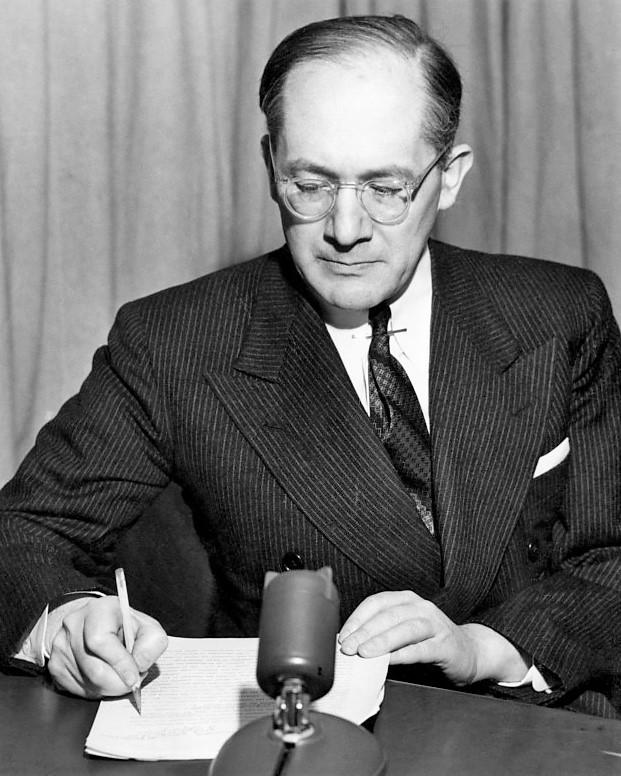Rafał Lemkin (1900–59) was an outstanding penal/criminal law expert of Polonised-Jewish descent. He graduated from the Faculty of Law at the John Casimir University (Uniwersytet Jana Kazimierza) in Lwów. He contributed to the codification of the Polish penal law, and analysed criminal legislations of the totalitarian regimes of Italy and Soviet Russia. In 1933, he formulated the notion of ‘crime of barbarism’ in reference to the mass annihilation of the Armenians in the Ottoman Empire. When World War 2 supervened, he forced his way to Sweden and then to the United States, where he was employed as an adviser for the Bureau of Economic Warfare, Foreign Economic Administration and with the Department of War. Almost his whole family were killed in the Holocaust. 1944 saw the publication of Lemkin’s major work, The Axis Rule in Occupied Europe, presenting his views of the type of crime against humanity and proposing the term genocidium to describe coordinated action aimed at destruction of a nation or ethnic group through disintegration of its institutions, culture, language, national/ethnic and religious awareness, the economic foundation of existence – and, subsequently, depriving the people of safety and security, liberty and freedom, health, dignity; and, finally, taking their lives. In the Nuremberg Trial, he acted as adviser to Robert H. Jackson, the chief prosecutor for the U.S. As a consultant with the United Nations’ Legal Committee, Lemkin contributed to the compilation of the initial draft of the Convention on the Prevention and Punishment of the Crime of Genocide, which was finally signed on 9th December 1948. In the 1950s, Rafał (Raphael) Lemkin was several times proposed for the Nobel Peace Prize.


